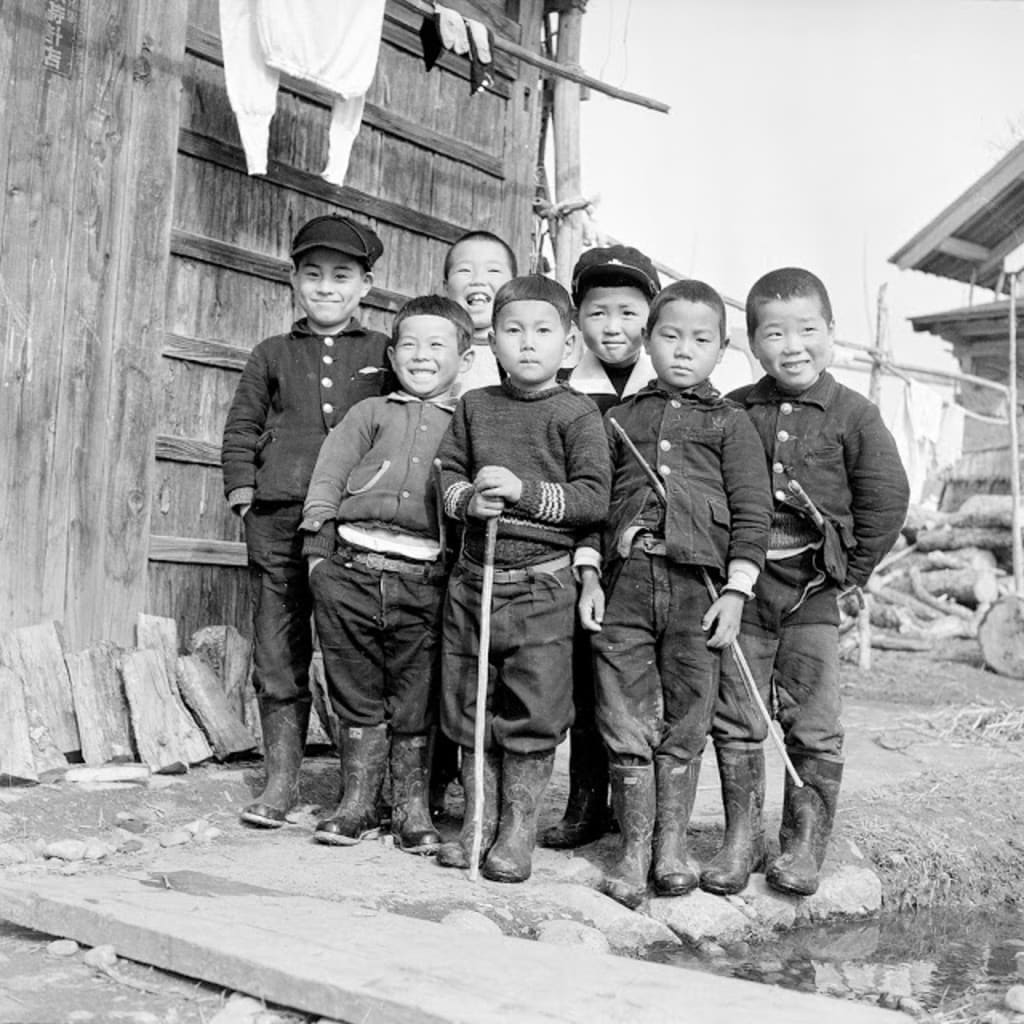The Man Who Walked Away From A Village
A retelling of my father's story

Father was a quiet man in his late sixties. He loved freshly pressed suit shirts, and dressed every day as if he was going to have guests over any minute. Recently, he had begun to share with me about his past more after being silent for years. I reckoned he had something that burdened him.
This evening, he started to talk about the village he grew up in when I wheeled him to the porch.
With the sun was about to go downhill, I knew his lengthy talks were to make me stay with him longer. It is a vulnerable time when one begins to find that their loved ones are growing old. It's worse for the one who is watching their body fail in front of their family.
Father was an energetic man in his youth. He hated staying at one place for too long and would drag me and my mother to ''trips for the soul''.
After my mother passed away at fifty-nine due to diabetes, my father grew withdrawn and lonely. I tried to cheer him up but some days all he seemed to talk about was my mother.
One morning, I found him on the bed, howling into his open palms the way one does when they are unaccustomed to crying.
Without asking, I knew the culprit was the open picture album by his side. In it was a weathered, dog-eared picture of him when he was a teenager. He looked happy. He is wearing corduroy pants and hugging my aunt, who was only twelve then.
''I am that man, Mai. The only one who walked away from our village. Some days I ached to return even though leaving was the right thing to do. I knew if I did not leave that year, I would die having lived an unloved and unlived life.''
Then he grinned, no doubt remembering my grandmother.
''I was a dead baby come to life. When I was born in the straw hut where my eighteen-year-old mother was wed and lived with her husband, my mother swore I didn't breathe for hours. Maybe that's what it felt like to my mother; a few minutes that were hours long. She said that I wasn't of this world and that I was her second chance. I was so mischievous. I made my mother run after me every chance I got- stealing, plotting, breaking things without meaning to, and in the process making my stay with her very memorable.''
''That summer, the sun cooked the skins of our backs and wormed into our brains to peck at our thoughts.
It wasn't uncommon for me to come from the harvest having worked the soil so hard that my fingers bled and stuck to the shovel.
Some evenings, I was so tired, I forgot the way home. My sister, who was six by then brought me food and water. She would also sneak me some cold sherbat, when our mother wasn't looking.
I remember talking and drinking with her under the shade of the old oak tree, laughing and telling each other stories. We remembered our father, while he was still alive. We climbed the trees like monkeys, and threw berries at passers-by. We gave some old ladies a scare, and always had a grand time.
She accompanied me on the tiring way home, filling the silence with her dreams and wishes. My sister would ask me for papayas that grew on the tall trees on the way home, or for me to sing a song we had heard while passing by the cinema.
She never asked for anything that cost me money. Children back then, the young ones whom you wouldn't think know the meaning of the word, sacrificed.
When I got home and laid on the bed, I would stare at the ceiling made of mud and straw. There, with my body aching and crying for sleep, I dreamt of a better life. Not just for me but for my whole family.
I dreamt of leaving and starting over.
Starting over was harder than you'd thing. My grandfather was a farmer, and died farming; so were their sons. We had vast lands and there wasn't a man in our family that hadn't held a shovel. I vowed my son would be the first one and lived to watch my dream come true. Basit and you were my yearnings realized, Mai. You made this old man the proudest man in the whole world, but my strength to take on the world was only possible because of your mother.
Your mother was the wish of a beaten man and the only prayer that God didn't deny me when I was at my lowest.
She was the wings of a man who dreamt to fly.''
....
''Hunger makes us do strange things. It's the biggest motivator of why many of us wake up in the morning and drive to jobs we hate, all to please people we loathe.''
''Those were odd times, Mai. A man was worth how well he fed and clothed his family. Nothing more and nothing less. It didn't matter how he did it, as long as he kept them away from starvation.
I was not the only son for long. My siblings followed soon after. I was the oldest of ten siblings. Eight brothers, two dead in infancy and two sisters who lived to their twenties.
Last I heard, my sisters had peaceful deaths.
I wasn't their when my sisters died. A distant family member told me, two weeks after the funeral, that they were gone. Even at her deathbed, your stubborn grandmother refused to forgive me and say my name because to her, I betrayed the family name by choosing another life.
To her, I scorned my ancestors and spat on my father's graves for leaving the village that was killing me. For choosing a profession that was not farming and for daring to dream in a place where I wasn't known by my father's name, I lost her.
I will take that ache to my grave. Don't cry now Mai, or I will start crying too. You don't want to leave here watching your old father cry, do you? I want to see you smile. Look at the sky Mai. Look up, your mother is watching.''
....
''I was the first tailor in the family. As you would imagine, hands accustomed to holding a shovel, don't hold dainty scissors easily.''
''I would wake up at 4am and go to sleep at 12. Some days, my body would just shut down, weighed by worries, plagued by nightmares of my siblings all alone in the village. The customers would laugh at the sleeping man sitting at the front of the clothe shop, grasping scissors in one hand and a piece of cloth in the other.
I was an apprentice for five long years before I opened my own shop. Thankfully, the shop grew. Work was harder to come by unless it was December. It was cold, but we ate easily. A lot of brides chose to marry in the winters because the weather was more pleasant.
As a tailor, I witnessed first-hand the joy of the women as they held their bridal dresses. I handed clothes for babies, for first rites, and for Eid. It was a different kind of joy to be a tailor, to watch your creations come to life and have them admired and worn by my customers.
Eventually, my shop grew. I opened another, and then another one. I sent my children to good schools. The same kind of schools that me and my sister dreamt of attending when we used to pass by them on our way home.
I wish your grandmother could see his son buying his first house where every one of his children had their own beds and rooms. Where each one of us had enough to eat and a fridge full of leftovers.
I continued to send money back home for my siblings. None of them ever acknowledged my existence but it was enough for me to know that they weren't going hungry.
In doing so, I had lived, loved and lost but not regretted. That is all I would advise you, Mai. Go for what scares you, even if the world is against you, and never stop trying.''
......
About the Creator
Silvya Fara
I write.
Enjoyed the story? Support the Creator.
Subscribe for free to receive all their stories in your feed. You could also pledge your support or give them a one-off tip, letting them know you appreciate their work.






Comments
There are no comments for this story
Be the first to respond and start the conversation.